Ganjirô Nakamura II
Nascimento : 1902-02-17, Osaka, Japan
Morte : 1983-04-13
História
Nakamura Ganjirō II was a Japanese kabuki and film actor. He appeared in more than 70 films between 1941 and 1980, directed by notable filmmakers such as Yasujirō Ozu, Kenji Mizoguchi, Akira Kurosawa, and Mikio Naruse.

Akiyama
Yahagi Michiko is accosted and raped walking home one evening. From there she maneuvers the logistics of the police, hospital, and criminal justice system while balancing her home life including romantic relationships.
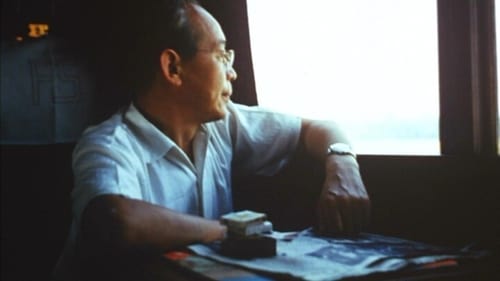
Kenji Mizoguchi: The Life of a Film Director (Aru eiga-kantoku no shogai) is a 1975 Japanese documentary film on the life and works of director Kenji Mizoguchi, directed by Kaneto Shindo (Onibaba). It runs 150 minutes and can be found on the second disc of the Region 1 Criterion Collection release of Ugetsu (1953).

About small time gangster Asakichis chaotic life in the 1930s. His gambling addiction means that he must not continue working in the family business. Instead He supports himself on arranging cockfights. He becomes ex-geisha Okinus patron and lover, and goes directly into disfavor with the Yakuza.

Samezaemon
A touching story following young shamisen string maker, Saku. Beautiful Saku moves to Lake Yogo, known for its production of quality shamisen strings, only to find her peaceful life turned upside down when a master musician takes personal interest in her.

Rihei
Taka, the daughter of Naniwa-ya, a longtime Osaka store owner, married Kichisaburo Kawashima-ya, the son of a kimono wholesaler. Her husband just tried to play with her like a sweet candy, but Taka fell in love with him. One day, the father-in-law suddenly dies, and the Kawashima-ya family fortune is rapidly changing. However, the depravity of Kichisaburo does not subside...

Elderly Executive
Subu makes pornographic films. He sees nothing wrong with it. They are an aid to a repressed society, and he uses the money to support his landlady, Haru, and her family. From time to time, Haru shares her bed with Subu, though she believes her dead husband, reincarnated as a carp, disapproves. Director Shohei Imamura has always delighted in the kinky exploits of lowlifes, and in this 1966 classic, he finds subversive humor in the bizarre dynamics of Haru, her Oedipal son, and her daughter, the true object of her pornographer-boyfriend’s obsession. Imamura’s comic treatment of such taboos as voyeurism and incest sparked controversy when the film was released, but The Pornographers has outlasted its critics, and now seems frankly ahead of its time.
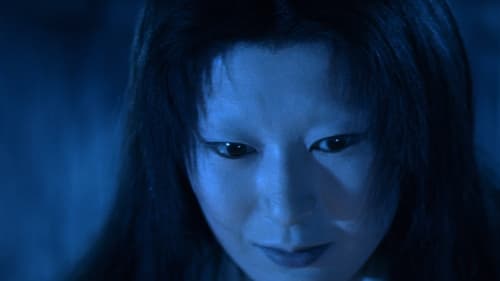
Publisher (segment "Chawan no naka")
Produção japonesa contada em quatro histórias. Em "Black Hair", samurai divórcia-se da mulher que ama para se casar com outra pelo dinheiro; em "The Woman in the Snow", lenhador encontra mulher congelada e o espírito dela aparece para revelar detalhes de sua vida, pedindo a ele que jamais conte a ninguém - mas dez anos depois ele esquece a promessa; em "Hoichi the Earless", o jovem e cego Hoichi vive num monastério e passa a cantar para fantasmas do império; e "In a Cup of Tea" fala de um escritor que vê uma misteriosa face refletida numa xícara de chá.

Ieyasu Tokugawa
[Period covered: 1614-1615] 4th film in the shinobi no mono series Tokugawa Ieyasu is now the ruler of all Japan. But one last loose thread must be tied up before his domination is complete -- the destruction of the Toyotomi clan, now beseiged in Osaka castle. Ieyasu's ninja are the only ones who can penetrate the fortress, but unfortunately for Ieyasu, Kirigakure Saizo (Ichikawa) and the other Toyotomi ninja can just as easily get out. As armies of samurai maneuver for battle, the fate of the nation will be decided by a desperate struggle in the dark!

Tahei
A light comedy with Ayako Wakao charming her patients.
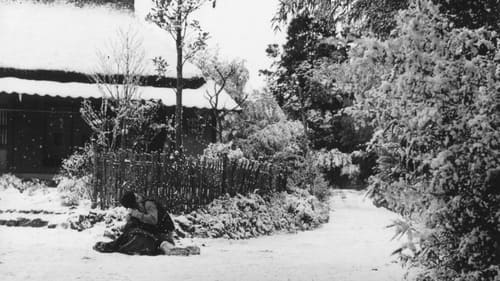
Boatman
Based on a novel by Tsutomu Mizukami, this haunting melodrama focuses on a young bamboo worker who takes his father's prostitute as his wife.

A young man who followed his father's wishes and became a travel actor causes a big commotion with his fellow members of the Gurentai group during their travel destination! Innocent to cute girls and reckless to bad guys! Exciting entertainment!

Uichi
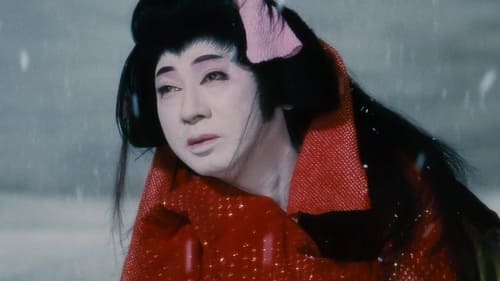
Sansai Dobe
Em uma excursão com seu grupo de teatro kabuku, Yukinojo, ator principal da trupe, acaba cruzando com os três homens que levaram seus pais ao suicídio, 20 anos antes. Yukinojo então trama sua vingança, primeiro seduzindo a filha de um deles e depois os levando à ruína.
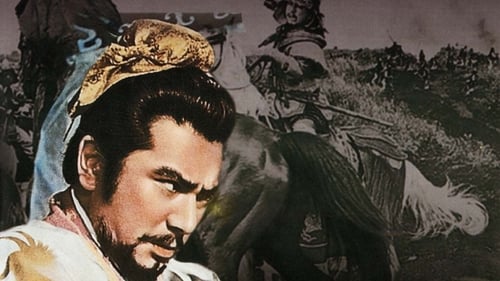
Hsu Fu
In 221 BC, Qin Shihuangdi conquered the rest of China. Qin's great accomplishments and also his serious faults are showed in this film. Qin adopted autocratic dictatorship and led a luxurious life: abolition of feudalism and the centralization of power in the form of a now-hereditary bureaucracy loyal to himself; burning books and burying scholars; the construction of a sumptuous palace for his concubines and also the Great Wall.

Danpei Ichikawa
The Fencing Master tells the story of a man trying to survive as the only world he knows is becoming increasingly irrelevant. Danpei Ichikawa lives for swordfighting – he was once a renowned kabuki swordfight choreographer, and as the Chairman of the New National Theatre Company, he wants nothing more than to choreograph the swordfights for the modern plays put on by the company.

Sukezaemon Tsukagoshi

Kaidan directed by Katsuhiko Tasaka.
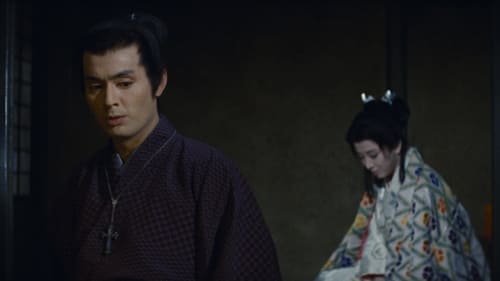
Sen no Rikyū
The basic story in Love under the Crucifix is about Ogin, daughter of a tea master, who are both Christians in feudal Japan. Ogin falls in love with a feudal prince, also a Christian who is already married, and that creates problems. Further, when the Shogun bans Christianity, the situation worsens.

Buddha priest
Ushimatsu's father told him never to reveal his lower-caste heritage; years later, he now contemplates confiding in an activist fighting against such discrimination.
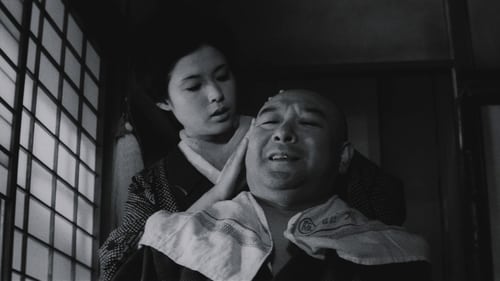
Nangaku Kishimoto
Satoko is a mistress by trade or fate: when her master, the silkscreen artist of the Kohoan Temple in Kyoto, dies, she is given to the temple's lascivious head priest Kikuchi. She is drawn to a melancholy young acolyte, Jinen, who has observed the profligacy of his cruel master and Satoko's utter dependence on the man. Jinen is both fascinated and disturbed by Satoko's interest in him; he is similarly caught between loathing of Kikuchi and of the dark circumstances of his birth and his own moral weakness. The story unfolds in a dreamlike manner—a flashback inspired by a now-infamous image on a silkscreen in the souvenir shop at the so-called Temple of the Wild Geese.

Boss of Matsushima

Ashoka
Um príncipe indiano deixa seu mundo de conforto e riquezas para vagar e meditar por seis anos em busca de iluminação espiritual. Siddartha (Cojoin Hong) vira as costas à velha religião quando as pessoas estão morrendo de fome desnecessariamente e os rituais sagrados incluem sacrifícios humanos. Durante suas meditações, ele é tentado por dançarinas eróticas, demônios e as maquinações malignas de seu primo criminoso. Devastate para atingir a perfeição espiritual e se tornar o Buda. Ele viaja para converter seguidores por sua bondade e sabedoria, ganhando uma multidão de crentes quando impede um elefante de esmagar um padre local. É claro que Buda se tornou um dos grandes líderes religiosos do mundo.
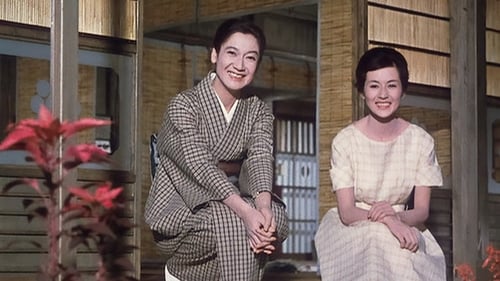
Kohayagawa Manbei
A família de um senhor que dirige uma pequena fábrica de saquê começa a preocupar-se com as suas finanças e a sua saúde depois que descobrem que visita uma velha amante dos tempos da sua juventude. Uma das combinações mais habilmente moduladas de comédia e tragédia de Ozu.

Tsurukichi
Ayako Wakao portrays a downtown rice ball shop girl whose heart is set on her business. Involved in her life are three young men—stage actor Goro, businessman Kokichi and Sanpei Pachinko.
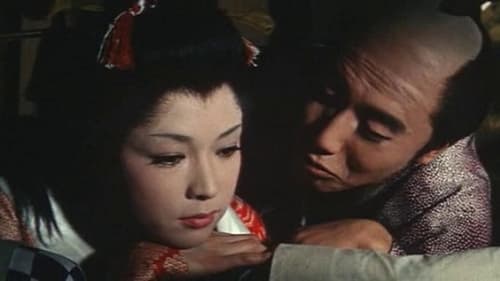
Fascinated with women from an early age, Yonosuke had his first sexual encounter at the age of seven. From that day on, he recklessly and forwardly pursues women, feeding his fascination and experience. As Yonosuke's salacious behavior brings much cause for shame to the family, his father eventually breaks relations with him. Expelled from the family, 19-year-old Yonosuke embarks on a pilgrimage of lust, traveling far and wide to acquaint himself with women of all walks.

Tokugawa Ieyasu

Shozaburo Shirokoya
Set in the middle of the Edo period (1603-1867), this tragic love story takes its cue from a celebrated historical case tried by magistrate Tadasuke Ooka, whose shrewd legal decisions became the stuff of legend. Okuma Shirokoya, the daughter of a lumber merchant in Edo (today’s Tokyo), embarked on an affair and was executed after conspiring with her maid to murder her husband. (Source: https://festival.ilcinemaritrovato.it/en/proiezione/shirokoya-komako/)

Follows the murder of a money-lending masseur by an impoverished samurai. The slain masseur's daughter will also fall victim to his curse, so that she can become empowered as an agent of her father's vengeance.
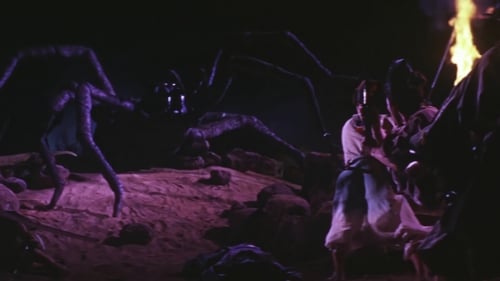
A demon-faced monster seeking revenge appears in the forms of a gigantic ox and a huge spider! The young Genji warrior protects the Fujiwara Clan and the beautiful lady in tragic love! A grand visual epic told with mesmerizing extravagance!

Kikuji is the scion of an Osaka merchant family whose traditional power is matrilineal. Instructed by his overbearing mother and grandmother to give them an heiress for the family business, he stands by helplessly as his wife is thrown out of the house for producing a son. Driven to a life of dissipation - his mistresses also fail to produce daughters - in the end he is just too tired to care.

Goda
Mama, mais conhecida por Keiko, uma gueixa de meia-idade tem que decidir se aceita casar-se ou se abre um bar por conta própria. A família querendo dinheiro, os clientes querendo atenção, e ela está sempre endividada. A vida de uma gueixa é analisada, assim como o sistema que aprisiona, e por vezes mata, quem nele sobrevive. (e 12 - Estimado 12 Anos)

The first story concerns an attractive young woman who works in a Tokyo nightclub. Her plan for a solid financial future has a double whammy. In the second story, a beautiful young woman is employed by an unscrupulous real estate agent to convince male clients to invest in worthless property. The last story is about a widowed geisha who has no real financial worries and who falls in love with a forger.

Tanuemon
Once upon a time, Okuro (Ayako Wakao), a young female racoon, lived poorly with her drunken father. One day after they disguised themselves as parasols, they were wrongly brought to the Racoon Palace, where the young racoon princess (also Ayako Wakao) made a mess of her arranged marriage with the beautiful racoon prince (Raizô Ichikawa). Pretty princess ran away. In order not to spoil the promising marriage, people tried to make use of resemblances between Okuro and the princess. Before long, Okuro and the Prince fell in love with each other...
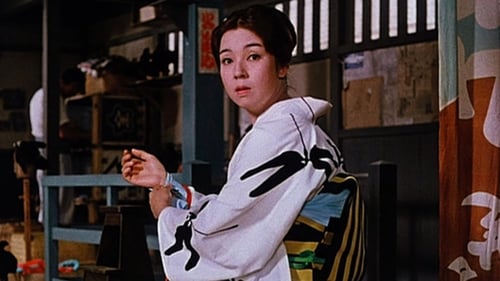
Komajuro Arashi
Companhia japonesa de teatro kabuki aporta numa pequena ilha de pescadores. Komajuro (Ganjirô Nakamura), um dos fundadores do grupo, passa a frequentar todos os dias a casa de sua antiga amante, Oyoshi (Haruko Sugimura), dona de um bar e mãe de Kiyoshi (Hiroshi Kawaguchi).
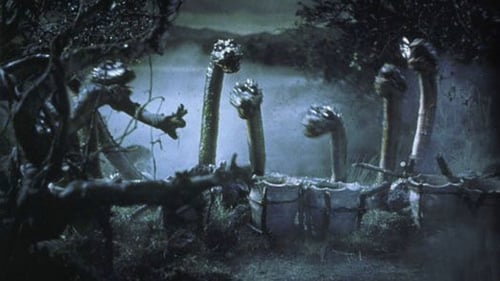
Emperor Keikō
The legend of the birth of Shintoism. In Fourth Century Japan, the Emperor's son Ouso expects to succeed his father on the throne, but Otomo, the Emperor's vassal, prefers Ouso's stepbrother, and conspires to have Ouso die on a dangerous mission he has contrived. But Ouso prevails in the mission and returns to his father's castle under a new name, Prince Yamato Takeru. Otomo plots to have the Prince sent into even greater danger, but Otomo is unaware that the gods have favored the Prince and the outcome is far from what any of them expected.
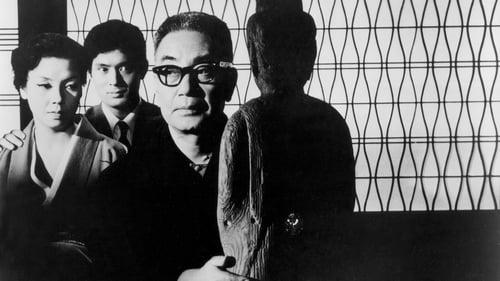
Kenji Kenmochi
A middle-aged husband of a younger woman finds her youth intimidating to the point that he cannot become aroused. His solution involves the introduction of his daughter's lover to his wife.

Tan'an Ogisu
Film directed by Kenji Misumi.

Mitsukuni 'Kômon' Mito
Lord Mito Mitsukuni, the vice-shogun of the whole country, left the family estate and went on a trip to various provinces with his students Sukesaburo Sasaki and Kakunoshin Atsumi. At an inn in Sunagawa, Mitsukuni exposed and punished an evil judge who had fallen in love with a townsman's wife. However, on the night he stayed at Nihonmatsu Castle, Mitsukuni found out that this incident was a performance organized especially for him…

The film won 1959 Blue Ribbon Awards for best actor Raizo Ichikawa and for best cinematography Kazuo Miyagawa. The film also won 1959 Kinema Junpo Award for best actor Raizo Ichikawa.
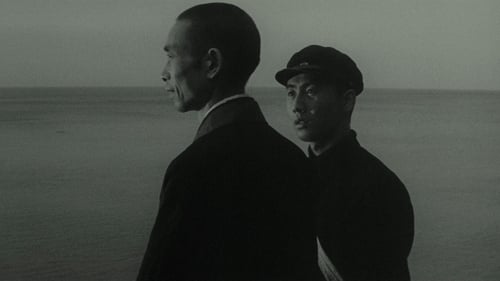
Tayama Dosen
Learning of his family's collapse, acolyte Goichi, sent to study silently at the Temple of the Golden Pavilion, must endure acute psychological distress.
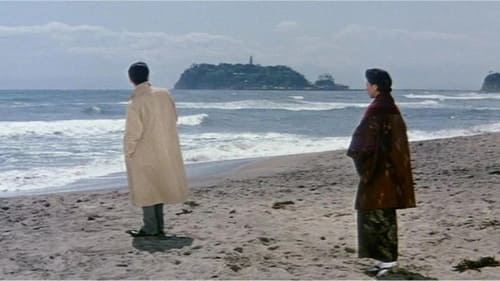
Wasuke
A war widow with a young boy manages a farm with her bossy mother-in-law. When a reporter comes to interview her, the two begin an affair. He turns out to be married and won't leave his wife. Her older brother tries to marry off his children and hang on to/ extend his farm through an advantageous marriage in the face of threatened land confiscation and the desire of his children to get comfortable urban jobs instead of the backbreaking work in the paddy fields under parental control.

Based on the novel by Toyoko Yamazaki.
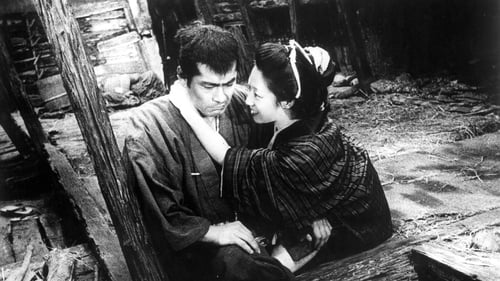
Rokubei (Osugi's husband)
Japão medieval. Em um cortiço degradado de Edo, um homem idoso (Rokubei) e sua amarga esposa (Osugi) alugam quartos e camas aos pobres e miseráveis. Os inquilinos são apostadores, prostitutas, pequenos ladrões e vagabundos bêbados, todos lutando para sobreviver. A chegada recente de Kahei, um homem idoso misterioso, afetuosamente chamado de vovô, dá pelo menos a esperança que há uma vida melhor lá fora, em algum lugar. (e 14 - Estimado 14 Anos)

Emperor
Floating Vessel (源氏物語 浮舟 , Ukifune) is a 1957 color Japanese film directed by Teinosuke Kinugasa. Drawn from parts of the famous Genji monogatari by Lady Murasaki.

Nihei
Um camponês pobre, após anos de miséria, torna-se um rico e poderoso comerciante de Osaka. Projeto final de Mizoguchi Kenji, ele morreu antes de concluí-lo e as funções de direção foram entregues a Yoshimura Kozaburo.

























